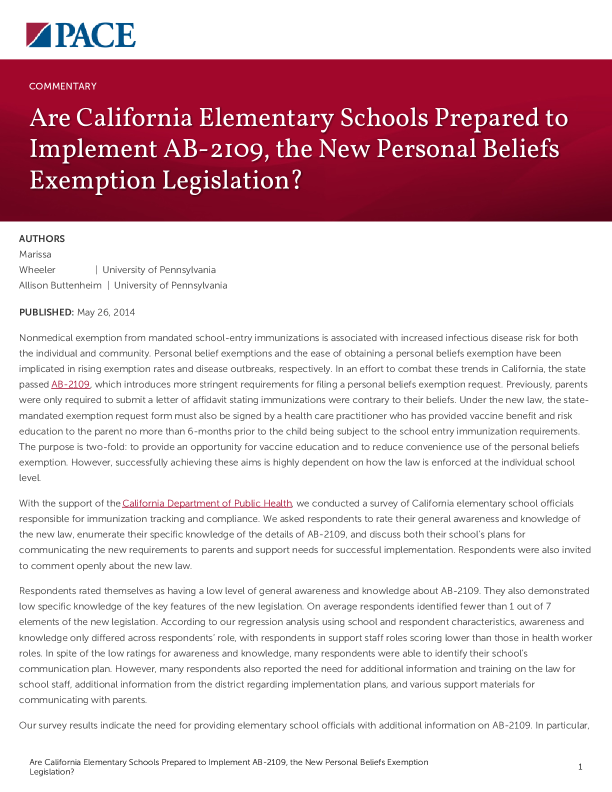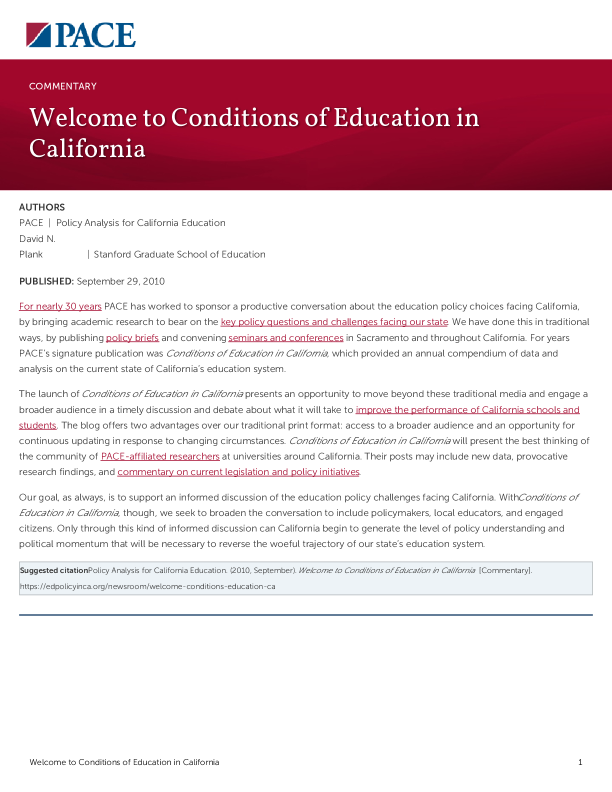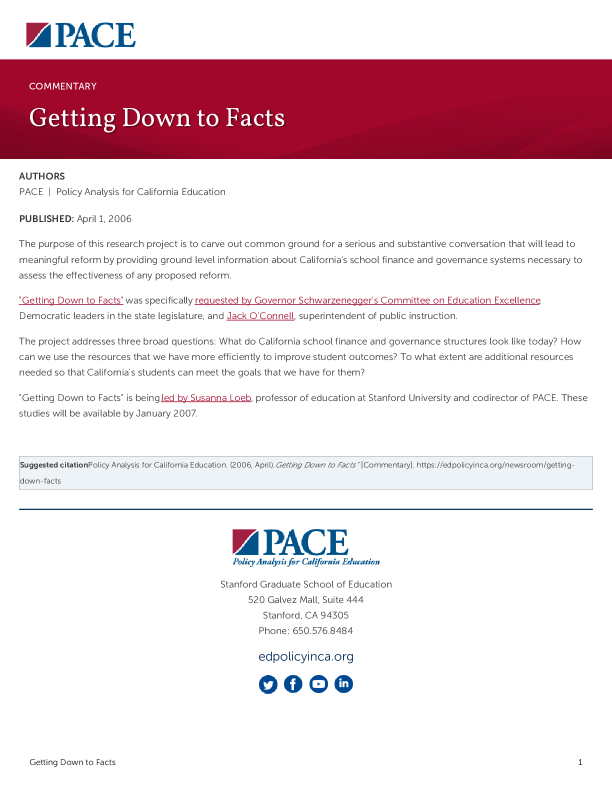California’s plan to expand Transitional Kindergarten (TK) into a universal pre-K program for all four-year-olds is a significant investment in children and families. To ensure its success, the state should learn from research on other state pre-K programs and invest in a research infrastructure for formative evaluation. Evidence from various states, including California's TK program, highlights the benefits of quality pre-K, but challenges in implementation exist. A crucial study on Tennessee’s Statewide Voluntary Pre-K (TN-VPK) showed mixed outcomes, revealing the complexities of scaling such programs. The TN-VPK study faced limitations in data collection, making it challenging to link classroom features to children’s outcomes. California must fund a research system for ongoing data collection at the child, classroom, and school level to evaluate the implementation of its universal pre-K program. This infrastructure should focus on structural classroom features, classroom interactions, children’s experiences, and details about where children spend their non-school hours. Such an approach allows for continuous improvement and learning from both successes and challenges encountered during implementation. This investment will be crucial for California's universal pre-K program to create a high-quality educational system for its children.
The COVID-19 pandemic has exposed and worsened existing inequities in suburban schools across California. These inequities encompass varying educational opportunities, outcomes, and disparities in basic needs. In districts like Modesto City Schools and Ontario-Montclair School District (OMSD), the crisis unveiled issues such as food insecurity, lack of technology access, and disparities in extracurricular activities, exacerbating the preparation and opportunity gaps. However, this crisis has also spurred a readiness for change and opportunities to address these disparities. It has prompted educators and community partners to reimagine schooling with equity as a focal point, aided by federal and state funds for relief efforts. Both districts are leveraging these funds to address digital divides, expand mental health support, redesign educational programs, and enhance staff services. They aim to sustain these changes by advocating for flexibility in spending and funding mechanisms tailored to local needs, recognizing the necessity for ongoing support beyond the pandemic. Looking forward, district leaders envision a transformed education landscape that celebrates diversity and prioritizes equity.
PACE Executive Director Heather Hough cautions that COVID-19 pandemic has significantly impacted California's education system, highlighting the state's low funding and the substantial financial shortfall necessary to meet educational objectives. Recent research indicates a need for an additional $26.5 billion annually in K–12 education to reach state achievement goals. Decades of underinvestment have left districts financially vulnerable, compounded by the economic challenges triggered by the crisis. The dependence on personal earnings for school funding could result in severe cuts, impacting critical student services and potentially leading to layoffs. School closures have underscored their role beyond education, serving as community hubs crucial for student well-being, safety, and essential services. The pandemic exacerbates existing inequalities in learning opportunities among California students. The urgent call is to recognize schools as central to communities and the state's well-being, emphasizing the necessity for significant post-crisis investments in public education as a priority for California's recovery.
COVID-19's closure of California's educational institutions has profoundly impacted learning, equity, and access. Efforts now concentrate on remote learning support, essential non-instructional services, and aiding students with special needs. PACE seeks to bolster these initiatives, gather best practices, and provide real-time research for informed decision-making. Anticipating challenges upon students' return, especially those facing trauma, PACE plans to focus on data collection, student support, system capacity, and resource allocation. This includes addressing learning loss, supporting vulnerable populations, fostering engagement, integrating services across agencies, and seeking adequate funding amid economic strains. PACE intends to employ diverse approaches—reviewing existing research, collecting new data, testing innovations, and analyzing policy options—to aid educators, policymakers, and the public in navigating this crisis and leveraging education for recovery
The 2020 PACE Annual Conference unveiled the latest PACE/USC Rossier Poll results, showcasing California voters' views on key education-related issues. Presenters emphasized the poll's value in understanding voter concerns. Key findings revealed growing pessimism about school quality, a preference for across-the-board teacher salary increases, and concerns about college affordability and fairness in admissions. Voters also stressed addressing gun violence in schools. The panel discussed the state budget, highlighting the need for enhanced higher education accessibility, increased teacher salaries, and a more nuanced approach to education funding. They debated the governor's budget's alignment with voter priorities, noting the need for more support in higher education and teacher salaries and a more effective approach to recruiting teachers.
A new survey examines California elementary school officials' awareness of AB-2109, a law tightening personal belief exemptions for school immunizations. Findings revealed limited understanding among respondents, with low awareness and knowledge of the law's details. Only health workers showed better comprehension. Despite this, schools planned to communicate the requirements to parents. Yet, officials highlighted the need for more staff education, district guidance, and support materials. The survey emphasizes the necessity of further information dissemination about AB-2109 to all school staff involved in implementing immunization policies, from enrollment to parent interaction, to ensure effective compliance.
For nearly three decades, PACE has facilitated discussions on California's education policies by integrating academic research into key policy challenges. Traditionally, this involved publishing policy briefs, organizing seminars, and producing the annual 'Conditions of Education in California' report, offering comprehensive data and analysis on the state's education system. The launch of "Conditions of Education in California" as a blog marks a shift to engage a wider audience and enable ongoing updates. This platform, authored by PACE-affiliated researchers across California, aims to share new data, compelling research findings, and insights on current legislation and policies. The objective remains fostering informed discussions on education policy challenges in California, now extending the conversation to policymakers, educators, and citizens. This inclusive dialogue is crucial to drive the necessary policy understanding and momentum for improving the state's education system.
"Getting Down to Facts" is a new research initiative commissioned by Governor Schwarzenegger's Committee on Education Excellence, state Democratic leaders, and Superintendent Jack O'Connell. Led by Susanna Loeb, a Stanford Graduate School of Education Professor and PACE codirector, this project seeks to explore California's school finance and governance systems. Its objective is to provide comprehensive insights essential for assessing the effectiveness of potential reforms. The initiative addresses three key questions: the current state of school finance and governance, optimizing existing resources for improved student outcomes, and evaluating the need for additional resources to meet educational goals. The studies from this project are expected to be available by January 2007.







